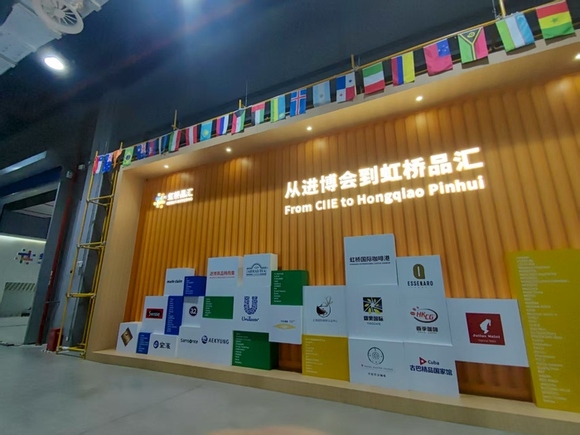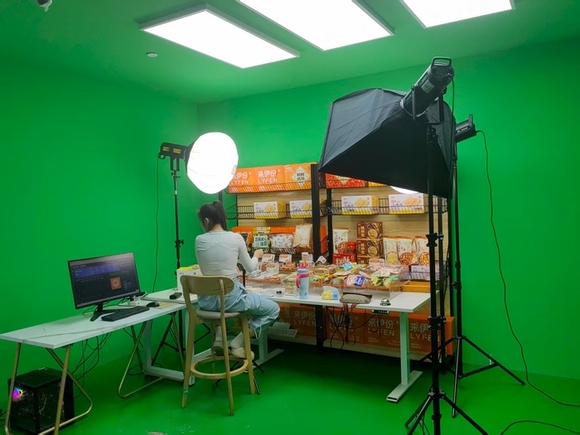Once an offshoot of the annual expo, Hongqiao Pinhui is evolving into a year-round trading hub hosting 6,000 brands from 120 countries.

Photo from Jiemian News
by ZHANG Xiaoyun
Shanghai's Hongqiao Pinhui, a 660,000-sq-m complex next to the China International Import Expo (CIIE) venue, is evolving into a year-round trading hub. It plans to lift its trade to about 100 billion yuan (about US$14 billion) by 2030, up from roughly 50 billion so far, Jiemian News learned during the city's "Vibrant China Research Tour" on Sept. 9.
Once an offshoot of the annual expo, Pinhui now offers duty-free showrooms, trade services, warehousing and on-site customs so exhibitors can keep selling after the six-day fair. It hosts 6,000 brands from 120 countries, spanning coffee, wine and other consumer goods.

At Coffee Harbor, a flagship Pinhui cluster, general manager CAI Jun told Jiemian News the hub links over 200 suppliers from 60 countries, 47 of which from nations in China's Belt and Road trade initiative and has generated 3 billion yuan (about $420 million) in coffee trade. The platform has also boosted newcomers such as Hainan Zhongyu International, which gained visibility after winning a national green-coffee quality award.
Another key cluster, the Wine Cellar, has posted 1 billion yuan (about $140 million) in trade. Imports range from Georgian vintages to Glasgow whisky - first two cases in 2022, now nationwide distribution - and Italian Wine Brands has made China its largest Asia-Pacific market. Some producers offer limited-edition packaging with Chinese zodiac motifs.
To move goods from exhibition to retail, Pinhui runs a 60-room livestreaming base and a 50,000-sq-m bonded logistics center, where products stay duty-free until sold. Supply-chain manager LI Guanglin said the deferred-duty system eases financing pressure for smaller brands, making the zone one of China's busiest for cross-border e-commerce.

Pinhui is also adding higher-value imports, including a low-altitude aviation park for China's fast-growing "low-altitude economy" - commercial use of airspace below 1,000 meters such as drones and air taxis - and a global medical-device exhibition and training center, part of Shanghai's broader drive into advanced industries.
"Our goal is to give overseas brands steady access to Chinese consumers while linking domestic firms to global supply chains," Cai said.